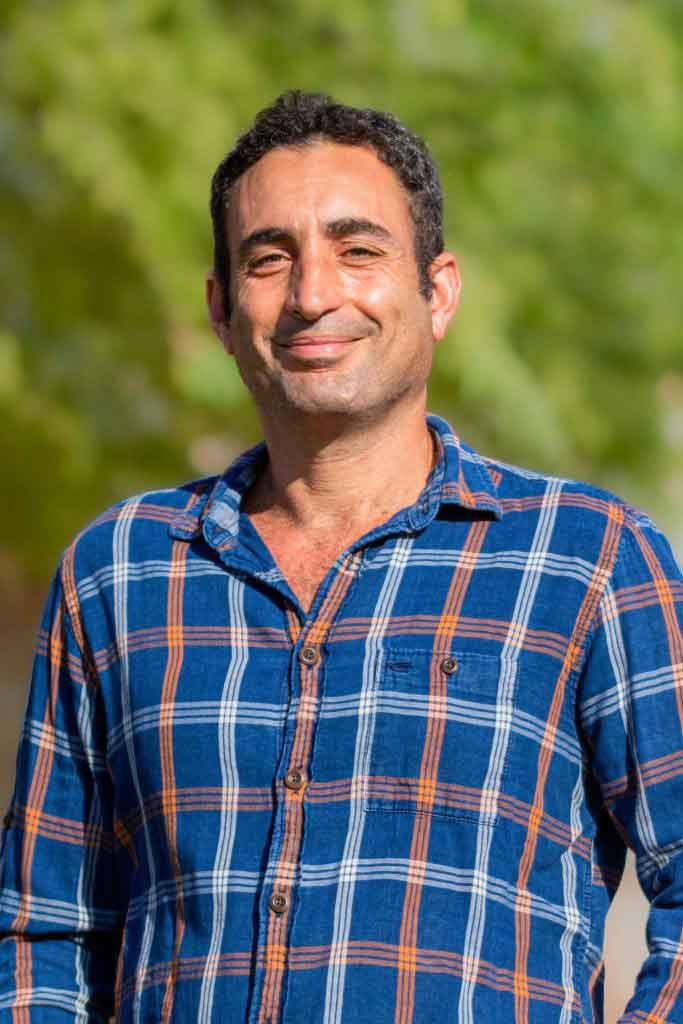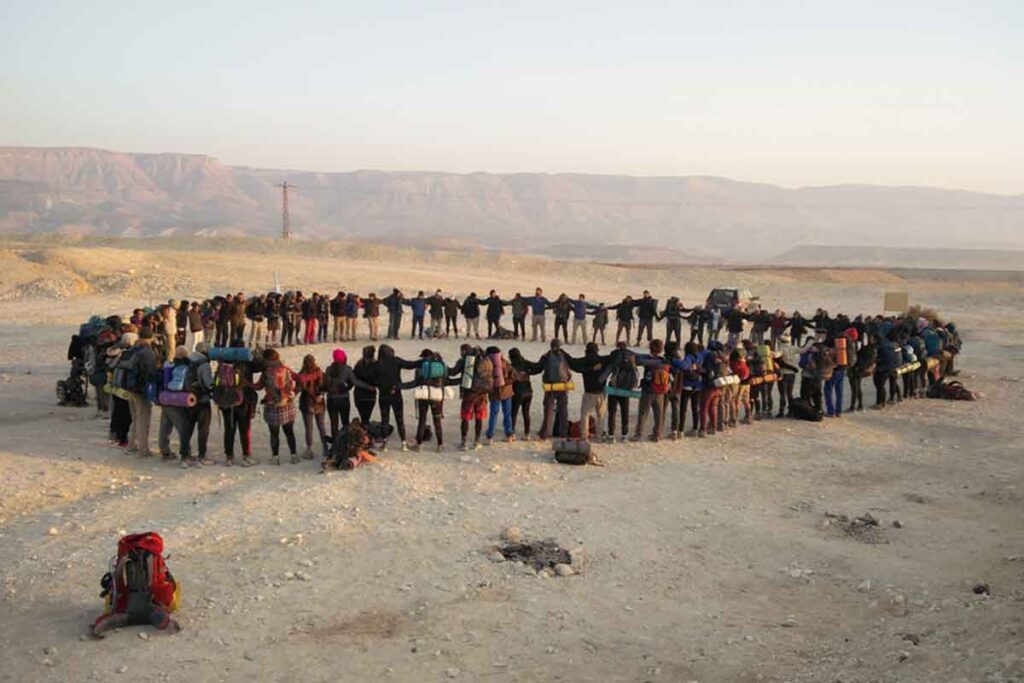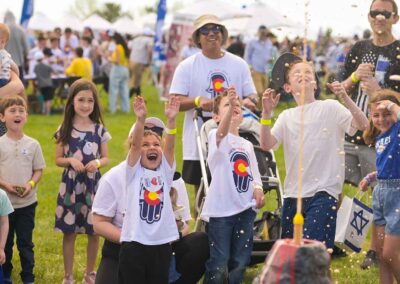For many years, the people of Colorado have supported The Nitzana Educational Community in the Negev through JEWISHcolorado. Itai Divinsky, JEWISHcolorado’s former Shaliach, is now the Director of Resource Development and Partnerships at Nitzana. Founded by Aryeh “Lova” Eliav with the support of the Jewish Agency in 1986, Nitzana has grown and flourished, serving young people from a wide variety of ethnic and religious backgrounds. Avi Cohen, Director of Nitzana, recently visited JEWISHcolorado and talked to us about his journey to his leadership role and the future of Nitzana.
Avi, you have an MBA and a law degree from Hebrew University and you are an attorney. How did you end up in the Negev running an educational community?
 I was interning at an elite law firm in Tel Aviv and decided to spend a few hours a week working with youth at risk. I found it to be such a meaningful experience—actually, more meaningful than what I was doing in the law. During the Second Lebanon War, it struck me that we are all going to die someday. We only have one life, so we have to think very hard about what we want to do. I realized that I liked working with kids, and I started to look for a place where I could work with kids 24/7.
I was interning at an elite law firm in Tel Aviv and decided to spend a few hours a week working with youth at risk. I found it to be such a meaningful experience—actually, more meaningful than what I was doing in the law. During the Second Lebanon War, it struck me that we are all going to die someday. We only have one life, so we have to think very hard about what we want to do. I realized that I liked working with kids, and I started to look for a place where I could work with kids 24/7.
Did you immediately find such a place?
I didn’t, so I decided I would build a school where we could give young people as much power and love as they needed. I saw a need for a program for at-risk students who had finished high school but were not prepared to go directly into the IDF. My good friend and partner Yonatan Kishinovsky and I traveled to Nitzana to present our idea to David Palmach, who was the Director at the time. I thought I would be there for half an hour. But it turned out that David Palmach grew up as a disadvantaged child. He said he would have benefited from a program like the one I envisioned. With his encouragement, we built the first of what would become “Derech Eretz,” a premilitary educational program, in 2011. There are now 40 of these programs.
So, you arrived at Nitzana with a dream, and it seems that, for all intents and purposes, you never left.
That is the power of Nitzana. They welcome dreamers with ideas that could have a big effect on Israeli society, and they are brave enough to jumpstart those ideas. Nitzana gave me everything I needed to build this dream, and then the country of Israel said, “This is a good idea, so how can we multiply it?” But without Nitzana, it never would have existed.

You have been Director at Nitzana for three years. Could you imagine that someone might someday come to you with a big idea?
It has already happened. It keeps the spirit of Nitzana alive.
There are 340 program participants at Nitzana, and they range from young Russian-speaking olim to Bedouin Arabs in high school to young people in the pre-military academy to students in a four-year boarding school. They may be educated separately, but they live, eat, play, and work the land together. Why do you believe this way of living is so important?
I think the biggest threat to Israeli society may not be our external enemies. We are threatened by our divisions. We grow up in bubbles. How can we expect everyone to go into the army and stand shoulder to shoulder if they have never been outside their bubble? At Nitzana, we live as one community, and we believe that we should also be united in the world outside of Nitzana.
Do you see examples of that happening on a day-to-day basis?
Many of our Bedouin kids come in with hard feelings because the only Jewish people they have seen are in uniform. One of our Shinshinim (teen Israeli emissaries) worked with them, and it was the first time they had met a Jewish kid of the same age. The Shinshin, who was 21 years old, was killed in the war. We took 60 of the Bedouin kids to the funeral at a kibbutz in northern Israel. At first, the people in the kibbutz were in shock, wondering what these Bedouin Arabs were doing at this funeral. The kids told them, “He was our big brother. He changed our lives. He gave us hope that we can be part of Israel.” Many Israelis would find it hard to imagine how 60 Bedouins could be brokenhearted because of their relationship with a Jewish boy, but through Nitzana, this happened.

You are visiting JEWISHcolorado as part of a fundraising tour in the U.S. Why now, more than ever, is it important that people support Nitzana?
Because of the war, we know that our funding from the Israeli government could be reduced. When we dreamt about the state of Israel so many years ago, I think we wanted a state that we can be proud of, a state that is a light to the world. Every person should have equal opportunity to feel like they are a member of that state, and Nitzana is building the next generation of Israel. Families are coming to build a settlement that will be the biggest in Ramat HaNegev.
In this place, we can take care of everyone—the olim, the Arabs, the Bedouins, the people who need us. It is a Jewish value to look after the weak, the ones who need you the most. If we continue to look away, they will be a problem. But if we understand that they are not a threat, they can be our partners.
For me, Nitzana is a window to what Israel should and can be, a place Israel can be proud of. It is a place of equal opportunity and justice, where we take responsibility for Israel no matter who you are. You can look at the flag and say, “I am a part of that.”






